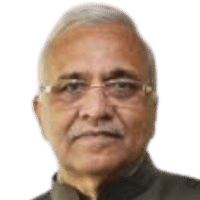Perspectives on the Holistic Approach to Digital Integration of Healthcare
Read the Magazine in PDF
The Indian government acknowledges the healthcare sector's challenges, primarily the shortage of hospitals and medical facilities, and is taking necessary steps to address them.
By - Dr Girdhar Gyan
Abstract
This article discusses the trend towards digitization in healthcare and its potential benefits. The National Health Commission is leading efforts to digitize healthcare in the country, but the success of this initiative will depend on various factors, such as attention and resources from the government and healthcare providers. The lack of basic physical infrastructure is a significant obstacle to the digitalization of healthcare, and many healthcare providers are not aware of the national initiative to digitize healthcare. To ensure the successful digitization of healthcare, all stakeholders must work together and address these challenges. It also focuses on the challenges faced by the healthcare sector in India, particularly the shortage of healthcare professionals and inadequate healthcare infrastructure. The government has announced plans to build new hospitals, but this will require significant investment from both the government and the private sector. Technology, such as telemedicine, can play a critical role in improving access to quality medical services, and partnerships with foreign entities may help develop a robust healthcare system.
The trend towards digitization of healthcare has been a prominent topic in recent years, with the advancements in technology and the emergence of digital health solutions indicating that digitization will be pivotal in the future of healthcare. This article delves into the perspective of healthcare providers regarding digitization and its holistic approach to healthcare.
The National Health Commission, a major player in the healthcare industry, has been actively working on the digitization of healthcare in the country, intending to revolutionize healthcare and enhance the quality of care in the foreseeable future.
However, the success of this effort will rely on various factors, such as;
- The allocation of attention and resources from both the government and healthcare providers, as
- The government has launched several initiatives to support this move, but a significant amount of work remains.
- The absence of basic physical infrastructure is a significant obstacle in the digitalization of healthcare.
- The lack of such infrastructure could impede the complete realization of the benefits of digitization in the healthcare sector.
This challenge is recognized by healthcare providers nationwide who are working alongside the National Health Commission to address it. Despite these efforts, many healthcare providers are not aware of the national initiative to digitize healthcare. This lack of knowledge and understanding is a significant hurdle in achieving the full potential of digitization in healthcare. To address this, the Health Secretary is expected to present the current status of healthcare digitization in the public and private sectors. Based on Ministry of Commerce data, there are currently 1.75 million registered healthcare providers in the country, with the number expected to increase as the demand for healthcare services grows. However, the WHO has recommended a minimum of three healthcare providers per 1,000 population, indicating a shortage of healthcare providers in the country.
Digitization in Healthcare: A Holistic Approach and its Challenges
In our country, digitizing healthcare is a crucial aspect of the national healthcare strategy, to provide a comprehensive solution to the healthcare sector. The success of digitization is reliant on the availability of basic physical infrastructure, which is the cornerstone of this approach.
Without this infrastructure, the implementation of digital healthcare will be challenging. The government has taken various steps to introduce digitization into the healthcare sector, but the success of these initiatives will depend on other factors such as the government and public’s attention and resources. Despite these efforts, many individuals are still unaware of the national mission for digitization due to a lack of knowledge and understanding about the advantages of digitization.
The shortage of medical infrastructure is one of the major obstacles to the digitization of healthcare in the country. For instance, in Delhi, there are only about seven hospital beds per thousand people, which falls short of the WHO recommendation. This scarcity of medical infrastructure makes it challenging to implement the national digital health vision. Moreover, small nursing homes and hospitals are resistant to the digitization of healthcare. These establishments are typically managed by individuals who are not tech-savvy and are accustomed to traditional operational methods. They are reluctant to embrace new technologies because they fear complying with new regulations and laws, such as income tax and labour laws. To surmount these hurdles, the government is constructing new hospitals and modernizing existing ones with technology. The expectation is that this will help increase the number of doctors and improve the overall quality of healthcare in the country. Nevertheless, there are only approximately 615 doctors in the country, which is insufficient to realize the national digital health vision.
Challenges in Establishing a Robust Healthcare System in India
The provision of healthcare facilities and services is a crucial element in a country’s infrastructure and development. It directly impacts the quality of life of its citizens. However, in India, the healthcare sector has been facing several challenges due to its vast and diverse population. One of the biggest challenges is the scarcity of healthcare professionals, especially doctors. The doctor-to-population ratio in India is much lower compared to developed countries, at around 1:1,700. This shortage of doctors is a major reason why rural and remote areas in India lack proper healthcare facilities. Another challenge is the inadequacy of healthcare infrastructure, including hospitals and medical facilities. Despite having a large number of hospitals, many are poorly equipped and lack the resources necessary to provide quality healthcare services. Furthermore, numerous rural areas in India lack basic healthcare facilities and limited access to medical services.
The Indian government has recognized the need to address the challenges facing the healthcare sector, particularly the shortage of hospitals and medical facilities. To this end, the government has announced plans to build 3000 new hospitals, which is a positive step towards providing better healthcare to the population. However, this will require significant investment from both the government and the private sector.
In addition to financial resources, the availability of healthcare professionals and the right infrastructure is also crucial for the success of these new facilities. To overcome these challenges, providing incentives to major hospitals to establish separate facilities could be a solution. This could involve offering financial support through international financial corporations and providing land clearance to facilitate land acquisition. In addition, technology can play a critical role in addressing the challenges of the healthcare sector in India. Telemedicine can be used to bridge the gap between patients in remote areas and healthcare professionals in urban areas, improving access to quality medical services and reducing the burden on hospitals and healthcare professionals. To address the challenges faced by the healthcare sector in India, a potential solution is to partner with foreign entities such as London, Philips and Siemens. These entities possess the necessary resources, expertise and technology to help develop a robust healthcare system in India. By utilizing these resources, India can leverage the latest innovations and technologies in the healthcare sector, leading to better healthcare services for its citizens.
Conclusion
Ultimately, establishing a strong healthcare system in India requires a multi-faceted approach that involves the support of the government, private sector, and international entities. This approach is necessary to overcome challenges such as inadequate infrastructure, shortage of healthcare professionals, and limited access to quality medical services. With the appropriate resources and approach, India can provide its citizens with high-quality healthcare services and improve their quality of life.




